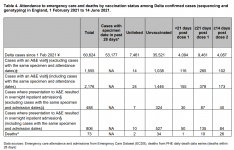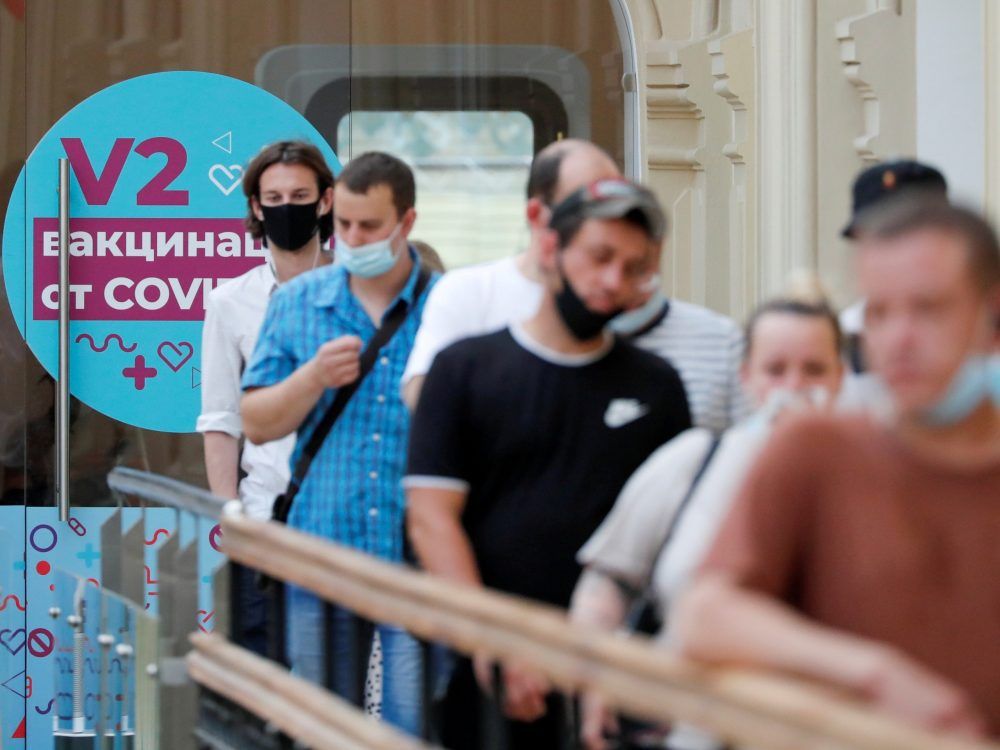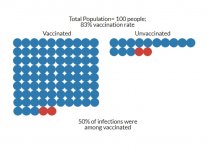Unvaccinated deaths are 46.6% of total Delta Deaths in the UK, while fully vaccinated vaccinated are 35.5%.
Gives vaccinated people a 23.5% reduction in risk of death from the Delta variant, compared to unvaccinated.
Although the potentially scary part is looking at case fatality rates, but the UK does not break down age groups to show if their cases are representative of each other. Likely not at this point in their vaccination efforts. But the CFR is 0.1% for unvaccinated people (likely younger), compared to 0.6% for vaccinated people (likely older).
View attachment 49726
Before people cry foul about a sample size of 73 again, it is the best data available, and it's not that statistically different then Moderna claiming 94.1% effectiveness with only 196 cases, or Pfizer with 170 cases to claim 95% effectiveness on their vaccine trials. Small numbers on the outcome side of a study to produce generalizations is quite normal in medicine, as long as the sample pool is large enough which at 60,624 it is.





















